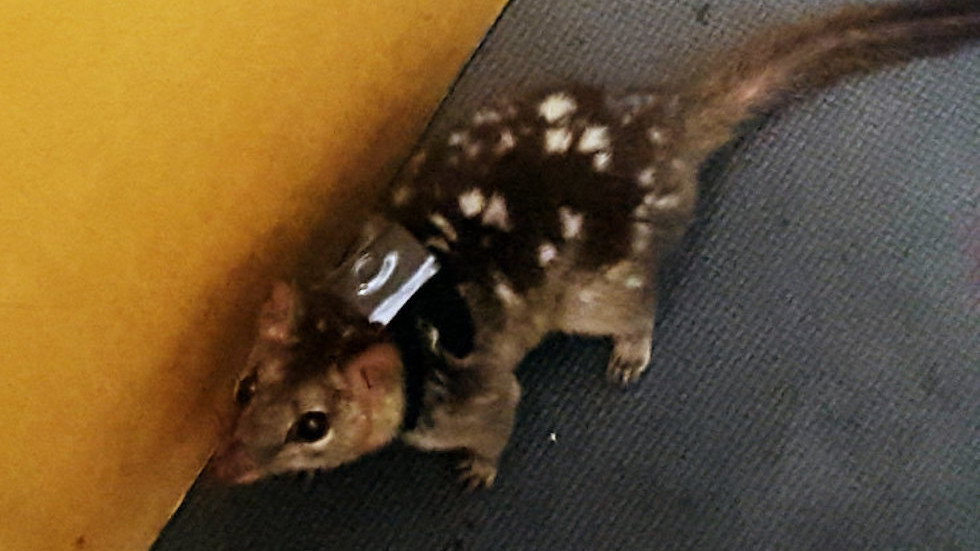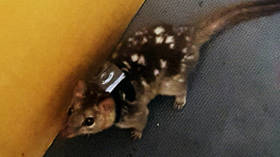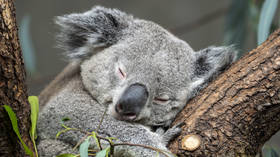
Male northern quolls rest a third as long as females, who live up to four times longer

A northern quoll outfitted with an accelerometer-backpack by university researchers © University of the Sunshine Coast
The endangered male northern quoll, an Australian marsupial, dies after a single mating season because of extreme sleep deprivation in pursuit of sex, according to researchers from the University of the Sunshine Coast and the University of Queensland. Their findings were published in the Royal Society Open Science journal on Wednesday.
While female northern quolls can live up to four years, males of the species are the largest known semelparous mammal – that is, they die after a single mating season. But while smaller semelparous marsupials expire because their bodies are flooded with cortisol and other stress hormones after sex, quolls don’t experience the same chemical assault, leaving previous researchers to speculate on why they died off en masse every year.
To find out, the researchers tracked a group of male and female northern quolls for seven weeks of their breeding season in Australia’s Groote Eylandt – an area comparatively free of the endangered species’ many predators – by outfitting the marsupials with accelerometers concealed in tiny adorable felt backpacks.

Read more
They discovered that the males rested on average only 8% of the time, while females spent nearly a quarter (24%) of their time at rest. The males also traveled enormous distances – the equivalent of a human walking 25 miles in a single night, according to the researchers – and let normal grooming behaviors lapse, becoming more susceptible to illness and parasites in their all-consuming amorous quest.
While they could not prove for certain that prioritizing sex over sleep was killing the quolls, the researchers observed the males were suffering well-known symptoms of sleep deprivation by the end of mating season. “They start to lose their fur, they start to not be able to groom themselves efficiently, they lose weight and… they’re constantly fighting with each other as well,” study co-author Christofer Clemente said in a statement accompanying publication.
The combination of sleep deprivation and constant motion would “make recuperation impossible and could explain the causes of death recorded in the males after breeding season (e.g. they become easy prey, unable to avoid collisions, or die from exhaustion),” the study explains. The researchers hope to study whether other marsupials also endure sleep deprivation during mating season and its effect on their mortality.




